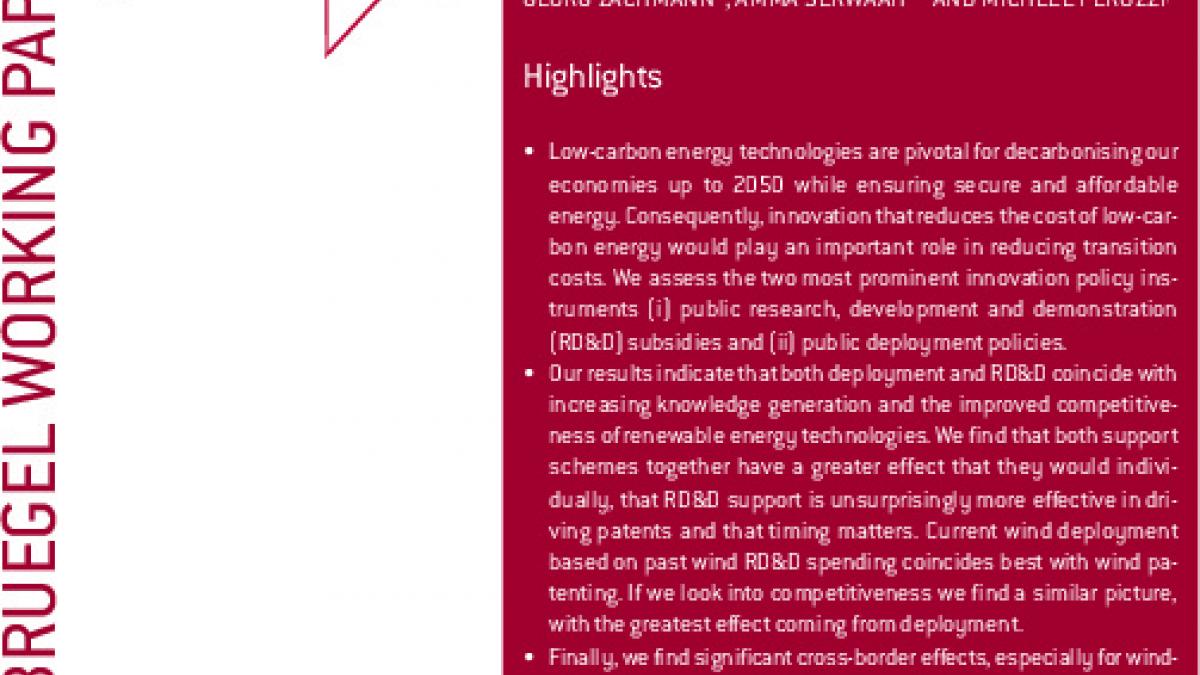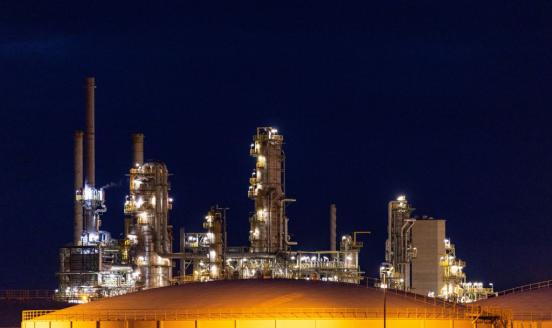When and how to support renewables? Letting the data speak
Low-carbon energy technologies are pivotal for decarbonising our economies up to 2050 while ensuring secure and affordable energy. Consequently, innov

See also blog post 'Does Europe need a renewables target?'
Low-carbon energy technologies are pivotal for decarbonising our economies up to 2050 while ensuring secure and affordable energy. Consequently, innovation that reduces the cost of low-carbon energy would play an important role in reducing transition costs. We assess the two most prominent innovation policy instruments (i) public research, development and demonstration (RD&D) subsidies and (ii) public deployment policies.
Our results indicate that both deployment and RD&D coincide with increasing knowledge generation and the improved competitiveness of renewable energy technologies. We find that both support schemes together have a greater effect that they would individually, that RD&D support is unsurprisingly more effective in driving patents and that timing matters. Current wind deployment based on past wind RD&D spending coincides best with wind patenting. If we look into competitiveness we find a similar picture, with the greatest effect coming from deployment.
Finally, we find significant cross-border effects, especially for winddeployment. Increased deployment in one country coincides with increased patenting in nearby countries.
Based on our findings we argue that both deployment and RD&D support are needed to create innovation in renewable energy technologies. However, we worry that current support is unbalanced. Public spending on deployment has been two orders of magnitude larger (in 2010 about €48 billion in the five largest EU countries in 2010) than spending on RD&D support (about €315 million). Consequently, basing the policy mix more on empirical evidence could increase the efficiency of innovation policy targeted towards renewable energy technologies



